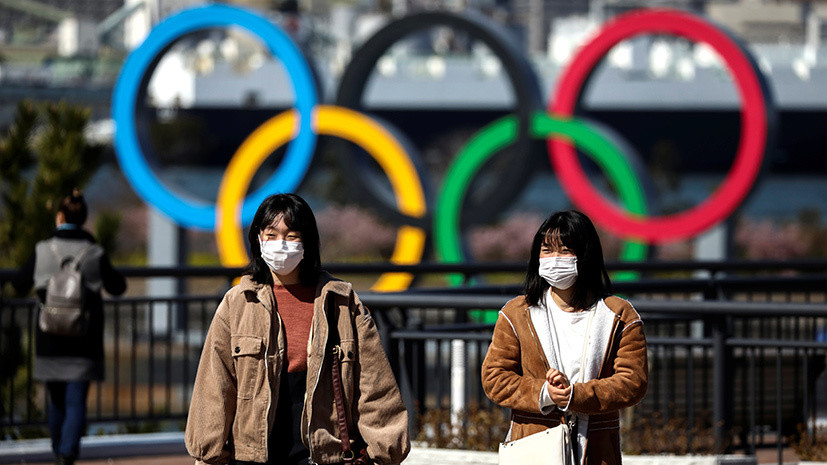The Tokyo Summer Olympics are still at risk from a coronavirus outbreak in China's neighboring Japan. Already there was talk of a possible cancellation of the main sporting event of the year or his move to a safer region. Meanwhile, the Japanese government considers it possible to postpone the competition to a later date while maintaining their registration in Tokyo.
This was announced by the Minister for Olympic and Paralympic Games Seiko Hashimoto during a speech to members of the Japanese Parliament.
“The International Olympic Committee has the right to cancel the Games only if they are not held during 2020. This may mean that the Games may be delayed, provided that they take place before the end of the calendar year, ”Hashimoto quoted AP.
According to the official, such an option is included in the contract signed between the IOC, the Japanese Olympic Committee and the Tokyo metropolitan government in 2013.
Currently, Japan is the fifth country in the number of confirmed cases of coronavirus and in the number of deaths caused by its complications. Taking into account the passengers of the cruise ship Diamond Princess, standing in the port of Yokohama in the immediate vicinity of Tokyo, the epidemic killed 12 people. Directly on the territory of Japan, most cases of the disease occurred in Hokkaido Prefecture, where competitions in marathon running and walking should be held. Earlier it was reported that due to the coronavirus in Japan, schools will be closed without fail, and various test competitions before the Olympics will be canceled.
The IOC quickly responded to Hashimoto's proposal. A meeting of the executive committee took place on Tuesday, following which a statement was issued. The IOC expects the Olympic Games to be held in Tokyo at the original deadline from July 24 to August 9.
“The IOC Executive Committee heard a report on measures taken so far in connection with the situation with coronavirus, followed by a comprehensive discussion. Back in mid-February, a joint working group was created, which included representatives of the IOC, the organizing committee of Tokyo 2020, the authorities of Tokyo, the government of Japan, and the World Health Organization. The IOC Executive Board appreciates and supports the measures taken, which are an important component of Tokyo’s plans to host the Olympic Games in a safe and secure environment. The IOC will continue to follow the instructions of WHO, the leading body in the UN system in this direction, ”the IOC said.
The committee also encouraged athletes to continue preparations for the Olympic Games and promised to provide all the detailed and relevant information regarding the coronavirus.
Although the IOC did not express interest in postponing the competition, a shift of the Olympiad to a later date, when the epidemic will no longer be a danger, can still be the best solution.
Also, holding the Games in the fall will help to avoid the heat problems that are predicted in Tokyo in the summer and have already caused the transfer of some of the competitions to the cooler Sapporo. At the same time, the postponement of the Olympics will allow for the necessary test competitions and more conveniently plan the qualifying events.
In the past, the Summer Olympic Games were held more than once in the fall, and not in the summer. The previous Tokyo Olympics of 1964 took place in October to avoid the hot summer weather and the September typhoon season. The games of 1968 in Mexico City, 1972 in Munich, 1988 in Seoul and 2000 in Sydney also took place fully or partially in the autumn months.
However, since then, the IOC has insisted on holding the Olympic Games only in the summer. This is largely due to the busyness of the networks of leading television channels with sporting events. It is in the summer months that the off-season takes place in the North American professional leagues and the leading European football championships, and then the main event in the sport is the drawing of Olympic medals. The postponement of the Tokyo Olympics in the fall will not only lead to financial losses from the organizers, but will also cause significant inconvenience to the owners of television rights, which are the main sponsor of the IOC. In addition, the NBA basketball players will not be able to speak at the Olympics, and this will also negatively affect the spectator's interest in the Games.

